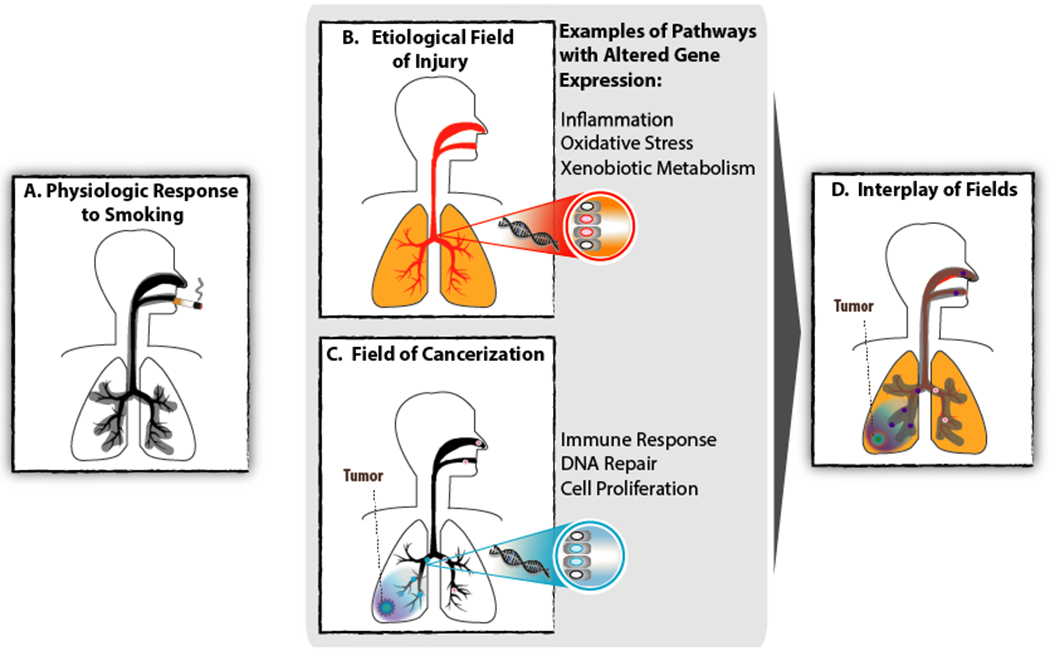Figure 1:

Molecular alterations found throughout the respiratory tract can be attributed to field effects. A) The physiologic effect of smoking occurs predictably, commonly, immediately, and largely reversibly. This field of injury consists of molecular alterations present throughout the respiratory tract upon exposure to tobacco smoke. B) The etiological field of injury consists of processes at the molecular level that contribute to lung carcinogenesis. Molecular alterations related to inflammation, oxidative stress, and xenobiotic metabolism are among these processes which potentiate the establishment and expansion of cells harboring the genetic or epigenetic alterations that are directly required for tumorigenesis. C) Field cancerization refers to tumor-associated abnormalities (e.g. gene expression pathways related to immune response, DNA repair, and cell proliferation) in tumor-adjacent normal appearing cells. These abnormalities may reflect clonal expansion of cells harboring cancer-initiating alterations that are insufficient, on their own, to lead to transformation; or may be a consequence of the tumor on surrounding tissue. D) These fields are not mutually exclusive, and histologically normal-appearing tissue exhibiting cancer-associated alterations due to the etiologic field of injury and / or field cancerization can be leveraged for developing gene-expression based biomarkers for the early detection of lung cancer.
